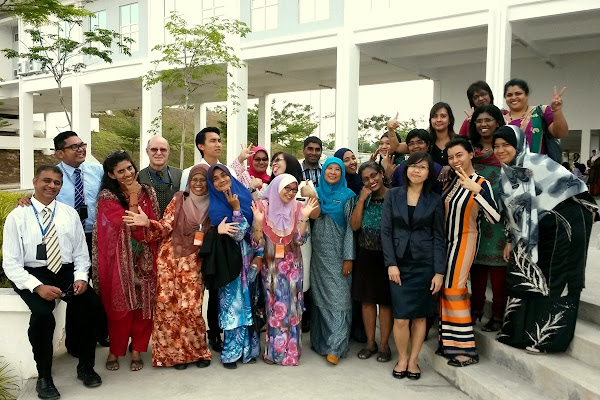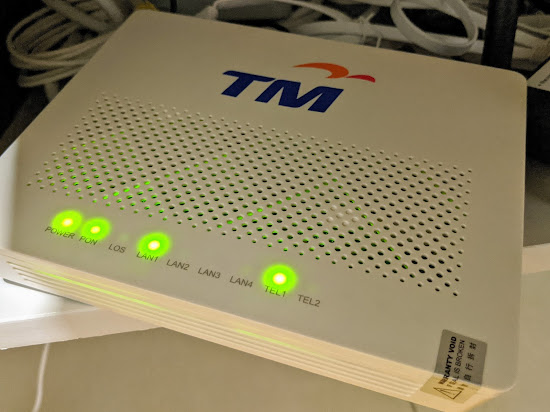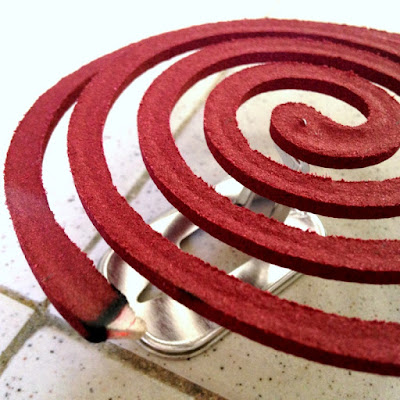The Remedial Instruction Guidebook
 |
| The Remedial Instruction Guidebook team. |
Let's face the facts, the ministry sets goals & requirements like all students are Putrajaya students & all schools are Putrajaya schools. They are under pressure due to poor performances in international assessments so they react with a sudden slew of 'transformations' & amazing 'goals'. But, those of us working in non-boarding/elite schools know very well that our students & schools are not able to achieve some of those goals because more than 50% of our students are remedial students.
As for me, a teacher in the interior of Sarawak, 80% of my students are remedial students or worse. My colleagues & I have to work very very hard to lift them up to the passing mark. I have no time for transformation programmes which take up my time & require me to create a meaningless paper museum which has no positive effect on student performance. What we need are programmes which directly address this group of students which form a large proportion of our student population.
 |
| The English Language Teaching Centre. |
During those courses, I got to spend quantity time with some of the best English teachers in Sarawak. We connected & are now a strong motivating force for each other. I also got to learn plenty of approaches/pedagogies/activities for the remedial classroom which I have applied in my classrooms to resounding success. I have also conducted an RI course for the English teachers in my district. I have shared my powerpoint slides so if you're interested, you can follow the link, download it & have a look.
 |
| IPG Teknik where we stayed during the duration of the workshop. The hostel rooms were clean & well-maintained. |
We cannot expect the EFL learners to do well in L1 benchmarked assessments. We are actually setting them up to fail from the very beginning! The ministry can pump all sorts of funds/programmes/activities into helping the EFL learners to achieve L2. They will progress. They might even progress drastically. But considering the time constraints, we cannot expect to turn EFL learners into L2 learners in 5 years (Look up J. Cummings, BICS & CALPS). He calls for a different kind of assessment for EFL students.
I was mind blown. No wonder sometimes my students still do not progress no matter how hard I pushed. There really needs to be a different approach for these students. In essence, I think the Set System was supposed to address this. Well, I wish they equipped my school like they do those Putrajaya/MRSM/Science schools. As usual, I'm going to have to make do with what little I have here.
 |
| We celebrated Dr George's birthday which coincidentally fell on one of our workshop days. |
 |
| My team. We worked on a set of activities for the Science & Technology theme. |
 |
| We presented the activities we came up with. |
I think that RI is something that is gravely needed in Malaysia because a majority of our students are struggling with the English language & yet we are always so mesmerised by the A+ students. They don't need any help. I have dedicated my lift to RI students & I have also had a hand in developing the guidebook. I have yet to see the finished product but I believe in the team at ELTC. Their philosophy & vision is accurate. Therefore, I believe they will produce a guidebook catered towards RI students & also make it simple enough for all teachers to use. Especially those non-optionists who are forced to teach English classes.
The RI Guidebook will be distributed to all schools once it is ready. There is also the possibility of workshops based on the guidebook to be held all over Malaysia. Honestly, I look forward to that day. Still, this guidebook is just a new tool. There are plenty of tools out there. It is now up to us, the teachers, to make effective use of these tools for the benefit of our most challenging students.
After the workshop, I have a more positive view of the education system. Check out all the pictures here.







